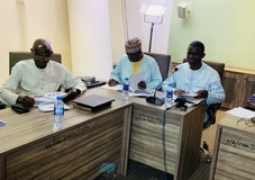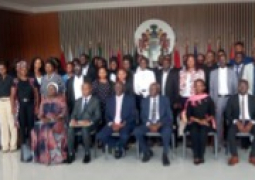
“The Maputo protocol is the only human rights instrument that exclusively refers to FGM. Other instruments refer to harmful practices but Maputo Protocol is very bold to say FGM is harmful,” she added.
She also suggested that evidence based advocacy can help in the fight against the practice.
“Activists and CSOs should show people the impacts of FGM. Many people tend to believe things that they have seen and as such showing them the impact can contribute immensely in the fight against FGM,” she said.
She made the remarks at an event organized by Equality Now and held at the Conference Center on Monday.
The gathering was a side event organized on how to use Multi-Sectoral Approach to address Female Genital Mutilation.
The panel discussion was based on a report of a research undertaken in 11 African countries on the use of the approach to address FGM.
She highlighted that the practice should be stopped because girls and women are dying due to the act, adding that: “every female that dies, the world loses a talent that could impact lives.”
Dr. Satang Nabaneh, Director of Programs and Research Professor at Human Rights Center and School of Law said the concept of women having a choice to undergo FGM should be pushed for society and culture to accept.
She added that advocates should also focus on the rehabilitation process for survivors.
In Africa, it is estimated that 92 million girls, aged 10 and above have undergone FGM.
According to WHO estimates, 200 million women and girls worldwide have been subjected to FGM, out of which 125 million live in Africa.
It further estimated that 100 to 140 million girls and women worldwide are currently living with the consequences of FGM.





